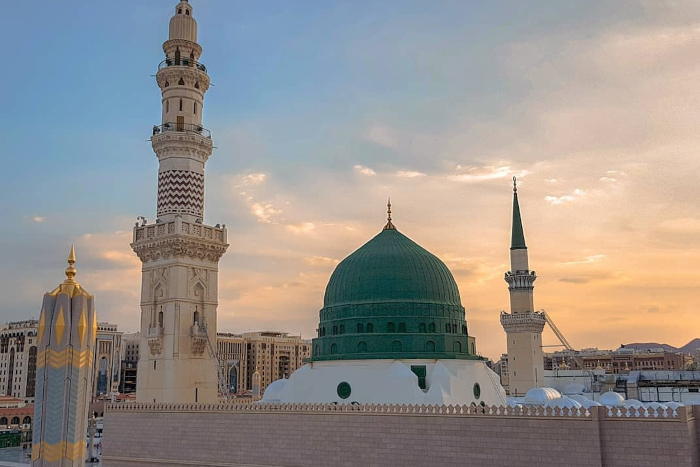
Hazrat Sheikhul Hadith, Moulana Muhammed Zakariyya (rahimahullah), has written the following, describing the Ramadhaan of Hazrat Moulana Rasheed Ahmed Gangohi (rahimahullah):
Awwaabeen Salaah
During the month of Ramadhaan, Hazrat Gangohi’s (rahimahullah) extreme exertion in spiritual exercises was such that those who observed the extent of his exertion would feel pity for him. Even when his age had advanced beyond seventy, he fasted the entire day, and then after maghrib, instead of performing six rakaats of awwaabeen, he used to perform twenty rakaats during which he never recited less than approximately two paras.
On completing his awwaabeen, he would proceed home to partake of the evening meal. Even during this time, he would not remain idle. Rather, while going home and while waiting for the food etc., he completed reciting several paras of the Qur’aan Majeed.
Taraweeh and Tahajjud
Shortly after he had eaten, he would commence the esha salaah and taraweeh which did not take less than an hour or an hour and a quarter at the very least. Thereafter, he would lie down at about half-past ten or eleven o’clock, awakening at about two o’clock or half-past two for tahajjud. In fact, there were even times when his attendants and assistants found him performing wudhu for tahajjud as early as one o’clock.
At this time of the night, he would spend two-and-a-half hours to three hours engaged in tahajjud salaah. At times, one of the attendants would be going to partake of sehri at five o’ clock and would find that Hazrat Gangohi (rahimahullah) was still engrossed in his salaah.
Fajr and Morning Activities
After Fajr, Hazrat Gangohi (rahimahullah) would remain engaged in reciting wazeefas and duas, and making muraaqabah (meditating) until eight o’clock or half-past eight. He would then perform ishraaq salaah, after which he would rest for a few hours.
During this time, the mail would arrive. Thus, after resting, he would begin answering letters and dictating the fatwas. Thereafter, he would perform the chaasht salaah (salaat-ud-duha) and take his qayloolah (midday nap).
After zuhr salaah, he usually closed the door of his private room and remained engaged in the recitation of the Qur’aan Majeed until Asr time.
It should be borne in mind that during the years when these were his Ramadhaan practices, he was suffering from old age, pain in his hips and various other sicknesses which affected him to such an extent that when walking from the toilet to his room – which was approximately fifteen steps – he would become so tired that he had to sit down somewhere along the way to rest
Despite his weak and ailing condition, let alone the fardh salaah – he never even performed a nafl salaah while sitting down. Rather, he would remain standing for hours in salaah. On several occasions, his attendants implored him saying, “Hazrat! Today you should perform taraweeh while sitting. This seems appropriate for your condition.” However, he always replied, “No! That is a sign of lack of courage and perseverance.”
Dedication and Attachment to the Qur’aan Majeed
During Ramadhaan, there was a marked increase in his ibaadat and exertion – especially as far as his recitation of the Qur’aan Majeed was concerned. Even when going to and from his house, he never spoke. If an estimate of the total amount of his daily recitation, in and out of salaah, is made, it will amount to approximately half a khatam of the Qur’aan Majeed daily.
On the morning of the first day of fasting, he would say, “From today, all sounds of conversation shall cease (i.e. no person should engage in futile conversation). If any person allows Ramadhaan to be wasted, it is a great sorrow indeed.”
During Ramadhaan, despite his strenuous exertion in ibaadat, Hazrat Gangohi (rahimahullah) ate so little that his total food for the entire month of Ramadhaan totaled less than five seer (5kg) of grain.
In his biography entitled “Tazkirat-ur-Rasheed”, written by his successor (khalifah), Hakeem Ishaaq Saheb (rahimahullah), the following is mentioned regarding his program in Ramadhaan:
“During Ramadhaan, he used to come out from his private resting place late in the morning. In summer, he generally came out at about ten o’clock because he used to greatly increase his nafl salaah, recitation of the Qur’aan Majeed, and his moments of silence and meditation as compared with other months. In this time, he slept very little and spoke very little.
“Initially, he himself used to lead all twenty rakaats of taraweeh salaah, but later began to perform taraweeh behind his son, Hafiz Hakeem Muhammad Mas’ood Saheb.
“After the witr, he would perform two lengthy rakaats of nafl salaah which he would sometimes perform while standing, and sometimes while sitting. On completing these two rakaats, he would remain seated for a long period, facing the Qiblah and reciting the Qur’aan Majeed. Thereafter, he would perform one sajdah-e-tilaawat and stand up. Through overhearing some of the words he was reciting, I deduced that he would recite Surah Mulk, Surah Sajdah and Surah Dukhaan at this time (hence the sajdah-e-tilaawat he would make was for the aayah of sajdah which appears in Surah Sajdah). (Akaabir ka Ramadhaan pg. 21-23)
From the above, we see that even in advanced age, when he was suffering from ill-health, Hazrat Moulana Gangohi (rahimahullah) exerted himself in trying to gain the maximum benefit from the blessed month of Ramadhaan. When this was the extent to which he exerted himself in old age, we can well imagine the extent to which he must have exerted himself when he was young and enjoyed good health!
May Allah Ta‘ala grant us tawfeeq to also show appreciation for this blessed month by safeguarding our time and exerting ourselves according to our ability so that we can also acquire the special blessings and mercies which Allah Ta‘ala showers on his servants in this blessed time.
 Ihyaaud Deen An Effort to Revive Deen in Totality
Ihyaaud Deen An Effort to Revive Deen in Totality



